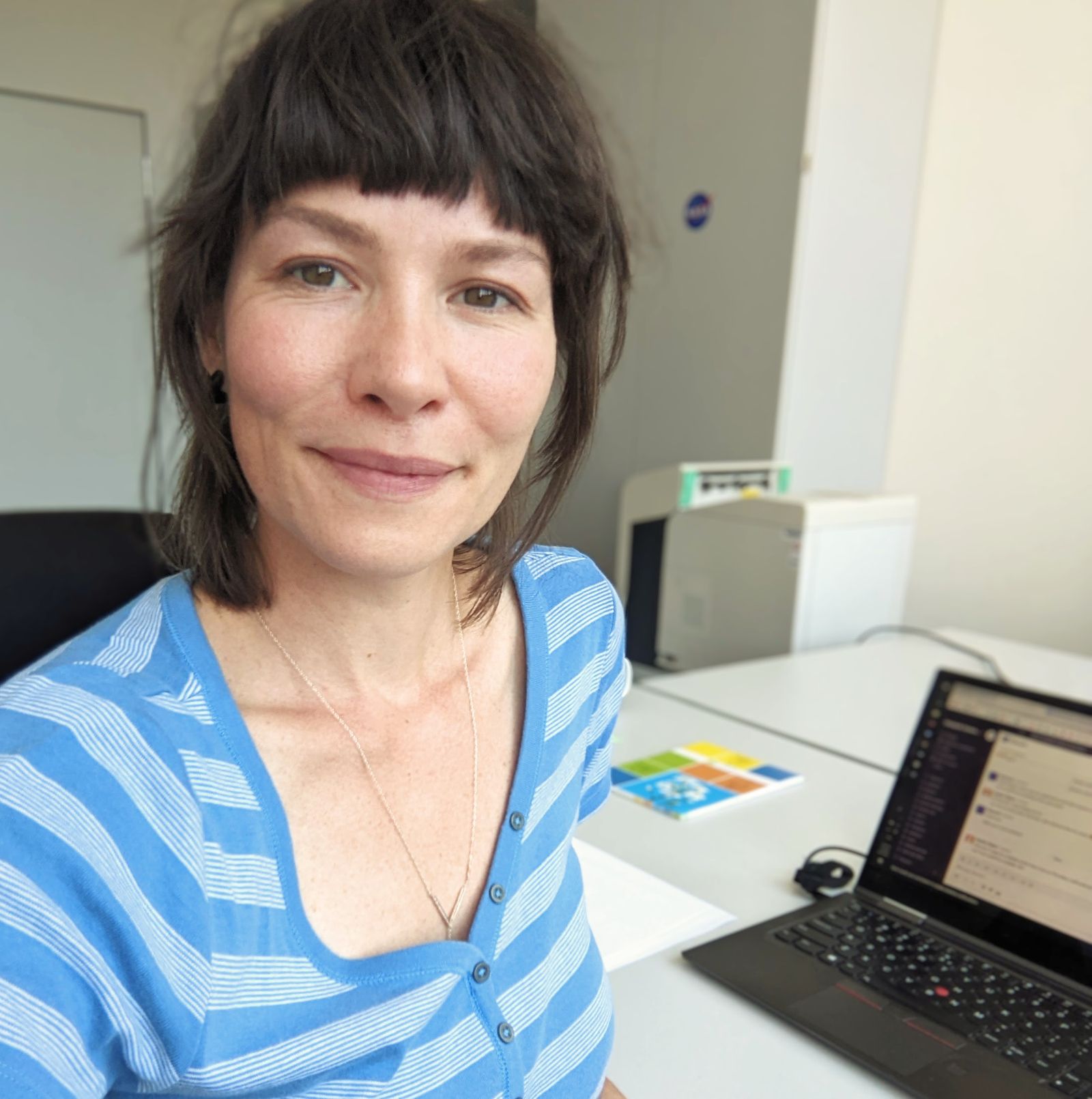Interview Nadine Töpfer
Nadine Töpfer was appointed to the W2 professorship position on "Metabolic Reconstruction and Flux Modeling" at the Institute of Plant Sciencesat at the University of Cologne in summer 2022. In an interview she tells us about her main motivation to join CEPLAS and and what she enjoyes most about the university district.
Where did you work before and what has been the focus of your research so far?
I did my PhD at the Max Planck Institute for Molecular Plant Physiology in Potsdam. In 2014 I moved to Israel as a postdoc at the Weizmann Institute of Sciences and from 2018 I did another short postdoc at the Department of Plant Sciences at the University of Oxford. From 2019 I headed an independent research group at the Institute for Plant Genetics and Crop Plant Research in Gatersleben before starting my position at CEPLAS and at the University of Cologne in July this year. My work focusses on mathematical modeling of plant metabolism. During my PhD I mainly developed data-integrative approaches to understand how metabolism adjusts to changing environmental conditions. In Israel I got interested in metabolic gene clusters and developed a computational tool for predicting them in plant genomes. Since my time in Oxford I have done a lot of work on models of leaf metabolism and different types of photosynthesis, as well as whole-plant metabolic models.
"I am very excited to be here now."
What were your main reasons to join CEPLAS?
As the only excellence cluster for plant sciences in Germany, CEPLAS has an incredible appeal and plays a pioneering role. I am particularly fascinated by the integrative and cross-thematic research approaches with which researchers from the fields of plant sciences, microbiology, systems biology, synthetic and theoretical biology work together here. I definitely wanted to be part of it and I took the change with the advertisement for the professorship for Metabolic Reconstruction and Flux Modeling and I am very excited to be here now.
What will be your research focus at CEPLAS?
I am working towards models that allow us to gain insights into the behavior, limitations and capacities of plant metabolism under field-like growth conditions. To this end, we have started to integrate plant-anatomical features into our models and will continue and expand this in the future. We will also further develop modelling approaches to study plant-environment interactions on the abiotic and above all at the biotic level – for which I have the best conditions here in CEPLAS. Apart from this, I am looking forward to see what new projects will emerge from the interactions within CEPLAS.
"I am working towards models that allow us to gain insights into the behavior, limitations and capacities of plant metabolism under field-like growth conditions."
Have you already settled in well in Cologne and at the University? What do you like most about Cologne?
I immediately felt at home at the university. Even though my offices aren't completely set up yet and the working group has to be partially rebuilt, I feel very comfortable here. I like the university hustle and bustle and the liveliness in and around the university district. I have to admit that I haven't taken much time to discover other corners of Cologne. I look forward to catching up on this in the coming months and also to getting to know the other CEPLAS locations and of course its people in person. Cologne already has a pretty good network of cycle paths. I like that, even if, like in most cities, there is still room for improvement.
